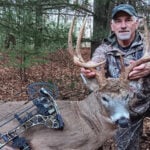I was talking with a buddy the other day when I made the comment that I finally got a few mock scrapes started. He laughed and said, “Mock scrapes in September?!?!” When I began to share the success that some of our own Bowhunting.com prostaff team members have had with mock scrapes that started in the early season, he was all ears. After showing him a few mock scrape photos from late summer, my friend was a believer. Mock scrapes can be a very effective tool in conditioning the bucks on your farm to frequent select areas determined by you, the hunter. Here’s why it works and how to do it.
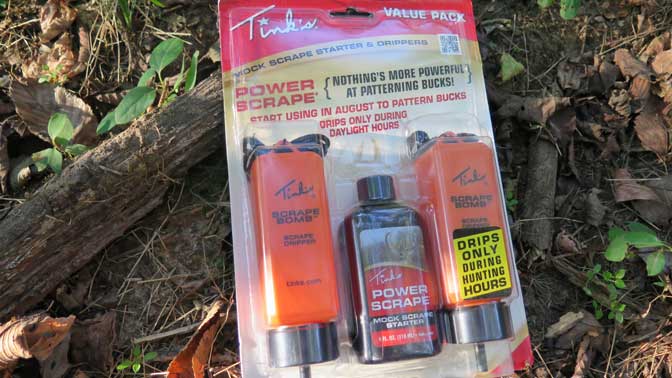
Mock scrapes are an easy, yet effective, tool to have in your bag of tricks this season.
Why They Work
As evidenced by my buddy’s disbelief in mock scrapes in the early season, most hunters typically think of mock scrapes as a tactic only employed during the pre-rut and rut cycles of the season. However, research and field tests have proven that bucks will frequent mock scrapes placed by hunters long before the rutting action unfolds in late October and November. Everything seems to change when they strip the velvet from their antlers. They simply seem to become a different creature. Their travel patterns begin to change, their mood changes, and they go from hanging out in bachelor groups to breaking off and spreading out into their fall hangouts. This typically takes place around the first part of September across most of the country.
As the velvet comes off and bachelor groups begin to break up, pecking order in the local herd will soon be established, or re-established. You’ll often see, or hear, light sparring sequences as bucks vie for position in the herd. And that’s why this time is particularly effective to begin conditioning local bucks to check out your mock scrape. While any and all deer will stop by to check out the scrape, the dominant buck will make his presence known as the mock scrape creates a sense of intrusion into the areas where he’s considered the boss. Before long, your mock scrape will soon become a regular scrape used by the deer that hang out on your property.
Making Mocks
The crew at Tink’s have made creating mock scrapes very simple. Their Power Scrape kit includes their Mock Scrape Starter and Drippers. Research conducted by Tink’s shows that most scrapes are made by bucks that are 2.5 years old or older. The Power Scrape formula was designed to make a buck think his core area is being invaded by an intruder buck. This triggers a response to check his scrapes more frequently.
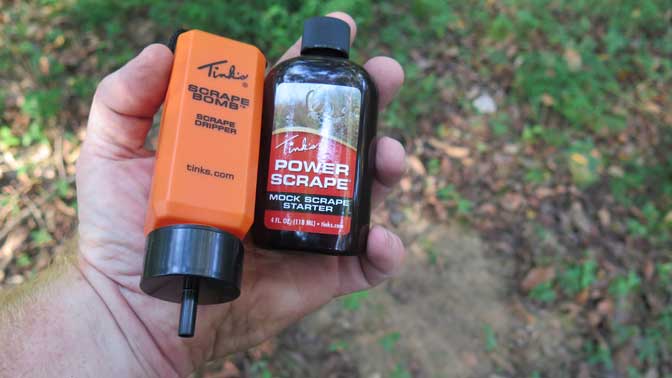
Tink’s Power Scrape and Dripper are a deadly combination in helping you place bucks where you want them.
Mocks scrapes should be positioned along old logging roads, deer trails, or field edges. Basically along travel routes from bed to feed. Keeping the area as scent-free as possible, position the mock scrape underneath an overhanging “licking” branch 4-5 feet off the ground.
A deer scrape is honestly pretty amazing when you think about how deer use this multifaceted technique for whitetail communication. Many hunters fail to realize that a scrape is more than just a scratched out spot on the ground for a deer to urinate in. That’s just part of the process. The real communication business seems to take place at the overhanging licking branch as deer leave their subtle sign rubbed from glands in their eyes (preorbital gland) and forehead (forehead gland). So make sure your mock scrape features an overhanging branch.
Once you’ve located a suitable location for a mock scrape under an overhanging branch, use a stick to scratch the ground clean directly in a 2’ diameter oval/circle directly beneath the overhanging branch.
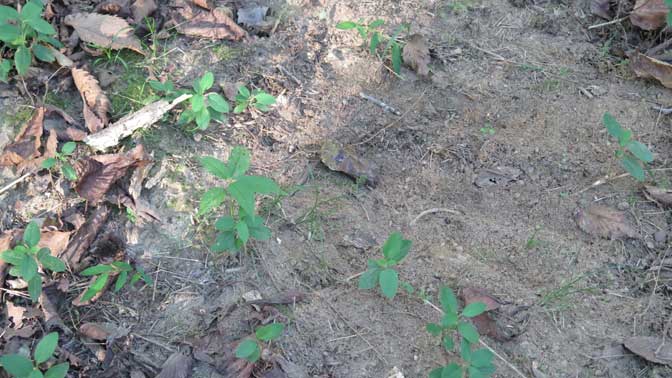
Whether you use a stick, or the heel of your boot, the idea is to scratch out a natural looking scrape, free of leaves…and scent.
The next step is to fill your Tink’s Dripper to the desired level. Two ounces of Power Scrape will last approximately 4-5 days. Overfilling the dripper will cause it to function improperly, while too little liquid causes the unit to drip faster.
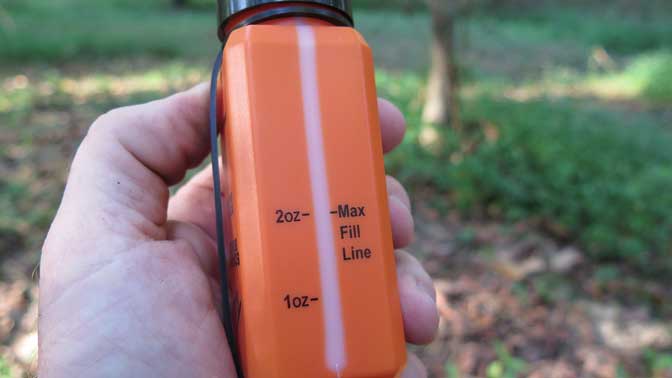
The Tink’s Dripper makes it easy to know when you’re ready for a refill.
Tie the Dripper above the overhanging branch, allowing it to drip on the branches and into the scrape below.
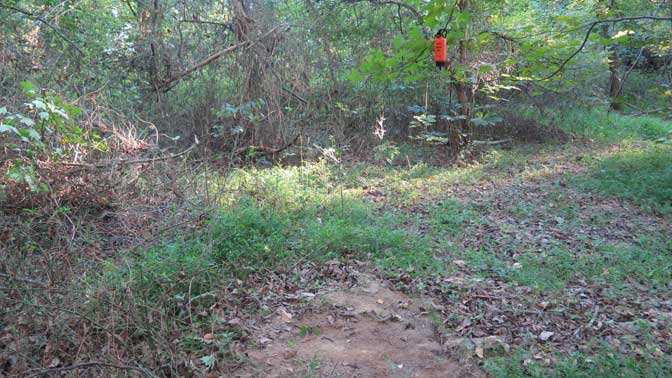
This Tink’s mock scrape is situated along trails leading from a swamp bottom to a food plot.
The Tink’s Dripper features an attached plug to keep things clean and prevent unwanted spills. Once the dripper is in place and loaded with formula, you can simply unplug the Dripper and allow it to hang in place above the scrape.
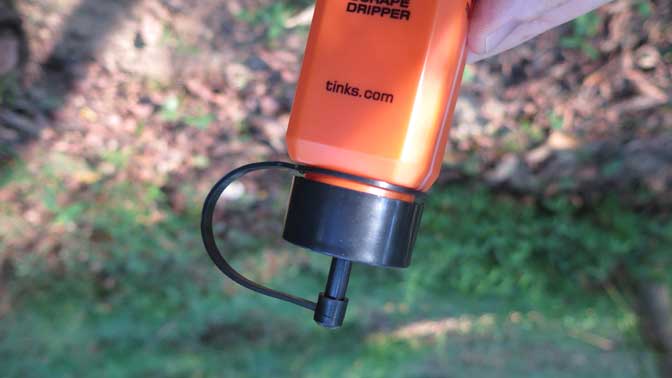
The Dripper’s plug makes things simple and slick, with no messy spills.
September Scrapes…Seriously???
Again, the critics will say, “You’re crazy,” when it comes to placing mock scrapes in September, and even August. But the proof is easily documented on trail cameras. I recently placed my first mock scrape dripper of the season along a trail leading to a food plot. The first buck was caught on camera, working the scrape in daylight hours, within 24 hours.
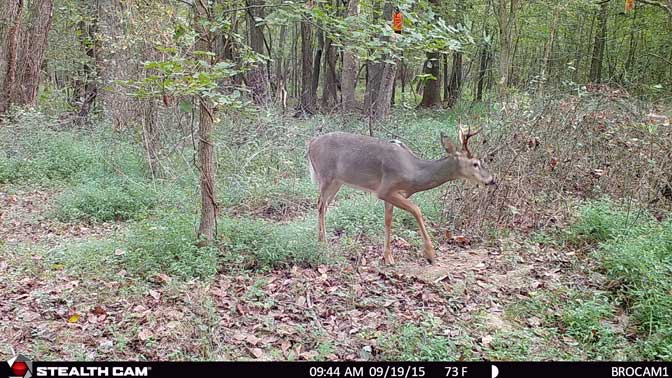
This young buck showed up on the mock scrape within the first 24 hours.
This is just the first deer of many that will be conditioned to use this mock scrape throughout the hunting season. The young bucks and does will typically be the first on the scene. But the big boys will soon follow.
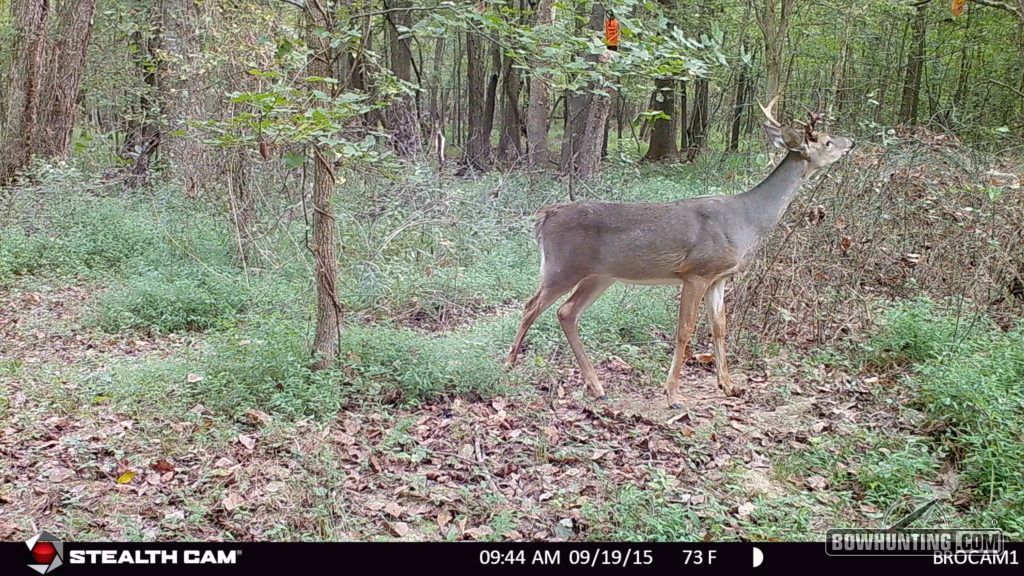
This buck will get a free pass this season, but he is just the first of many deer that will stop in to work this scrape.
Be sure to check back often for weekly blogs on Mock Scrapes from the Bowhunting.com team throughout the season.

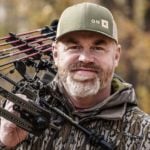 By
By 